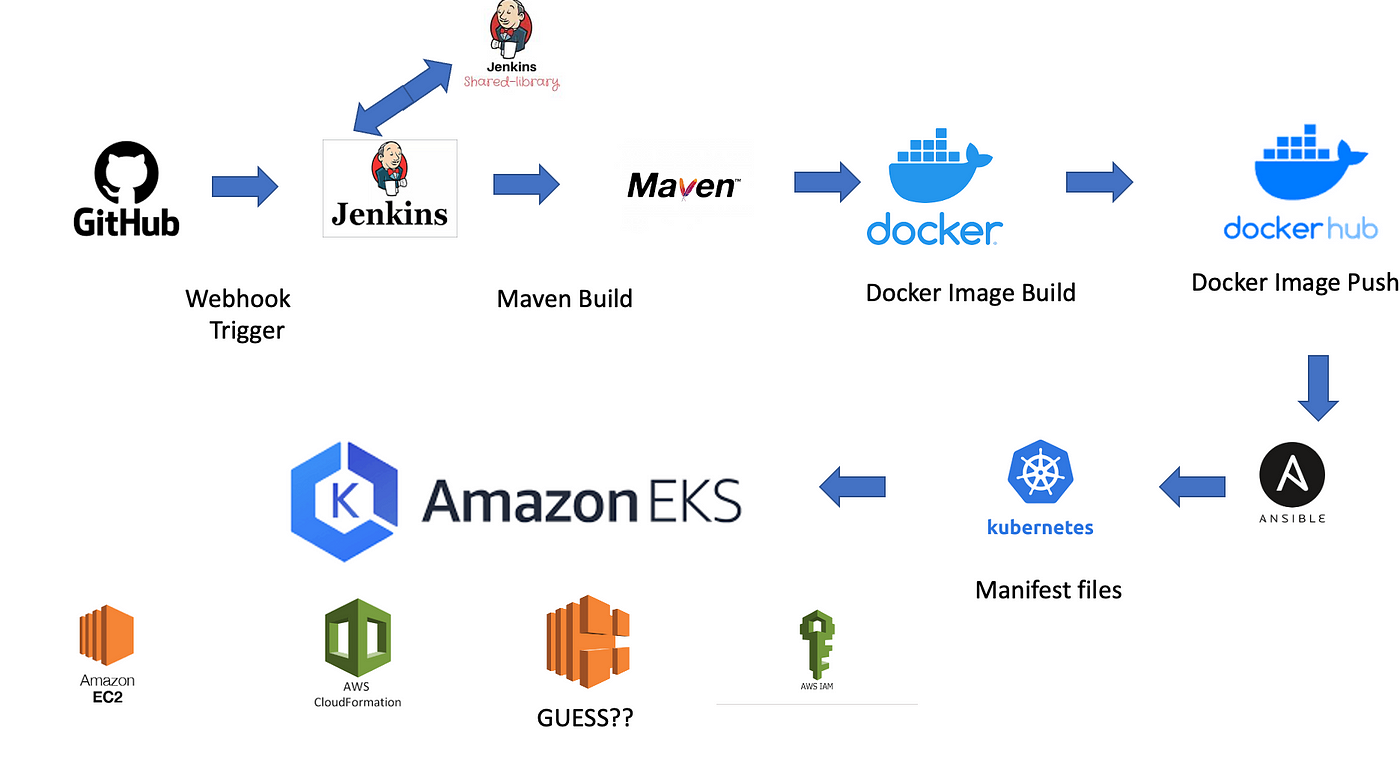Module 1: Introduction to DevOps
-
Overview of DevOps
- Definition and key concepts
- History and evolution of DevOps
- DevOps culture and principles
- Benefits of DevOps
- DevOps lifecycle
-
DevOps vs. Traditional IT
-
Comparison with Agile, Waterfall, and other
methodologies
- Key differences and advantages
Module 2: Version Control Systems
-
Introduction to Version Control
- Importance and benefits
- Centralized vs. distributed version control
-
Git and GitHub/GitLab
-
Git basics: repositories, commits, branches,
merges
- Workflow strategies: Git Flow, GitHub Flow
- Pull requests and code reviews
- Handling merge conflicts
- Using GitHub/GitLab for collaboration
Module 3: Continuous Integration (CI)
-
CI Fundamentals
- Importance and benefits of CI
- Key principles and practices
-
Jenkins
- Introduction and setup
- Jenkins architecture and components
- Creating and managing Jenkins jobs
- Pipeline as Code: Jenkinsfile
- Plugins and integrations
-
Other CI Tools
- Travis CI
- CircleCI
- GitLab CI/CD
Module 4: Continuous Delivery (CD) and Continuous
Deployment
-
CD/CD Fundamentals
- Importance and benefits
- Key principles and practices
-
Building and Packaging
- Build automation tools: Maven, Gradle, etc.
- Artifact repositories: Nexus, Artifactory
-
Deployment Automation
- Tools: Ansible, Chef, Puppet
-
Infrastructure as Code (IaC): Terraform,
CloudFormation
Module 5: Containerization and Orchestration
-
Docker
- Introduction to containers
- Installing and setting up Docker
- Docker images and containers
- Dockerfile and image creation
-
Docker Compose for multi-container applications
-
Kubernetes
- Introduction to container orchestration
- Setting up a Kubernetes cluster
-
Kubernetes architecture: nodes, pods, services,
deployments
- Managing applications with Kubernetes
- Helm: Kubernetes package manager
Module 6: Cloud Platforms and Services
-
Cloud Fundamentals
- Introduction to cloud computing
-
Benefits and types of cloud services: IaaS, PaaS,
SaaS
-
AWS (Amazon Web Services)
- EC2, S3, RDS, VPC, IAM
- AWS CLI and SDK
- Managing infrastructure with AWS
-
Azure and GCP (Google Cloud Platform)
- Overview and key services
- Comparing AWS, Azure, and GCP
Module 7: Monitoring and Logging
-
Monitoring Fundamentals
- Importance and benefits
- Key metrics and KPIs
-
Prometheus and Grafana
- Setting up and configuring Prometheus
- Creating dashboards with Grafana
- Alerting and notifications
-
ELK Stack (Elasticsearch, Logstash, Kibana)
- Setting up and configuring the ELK Stack
- Log aggregation and analysis
- Creating visualizations and dashboards
Module 8: Security in DevOps
-
Security Fundamentals
- Importance of security in DevOps
- Key principles and best practices
-
DevSecOps
-
Integrating security into the DevOps pipeline
- Tools and practices for secure code
-
Vulnerability Management
- Static and dynamic code analysis
- OWASP Top 10 and security testing tools
Module 9: DevOps Practices and Tools
-
Configuration Management
- Tools: Ansible, Puppet, Chef
- Managing configurations and deployments
-
Infrastructure as Code (IaC)
- Tools: Terraform, CloudFormation
- Writing and managing infrastructure code
-
Automated Testing
-
Unit testing, integration testing, and end-to-end
testing
- Tools and frameworks
Module 10: DevOps in Practice
-
Case Studies
-
Real-world examples of DevOps implementations
- Success stories and lessons learned
-
Best Practices
- Continuous improvement and feedback loops
- Collaboration and communication
-
Future Trends in DevOps
- Emerging technologies and practices
-
The evolving role of DevOps in organizations
Module 11: Final Project
-
Capstone Project
-
Designing and implementing a complete DevOps
pipeline
-
Using tools and practices learned throughout the
course
-
Presentation and demonstration of the project
This curriculum covers comprehensive topics in DevOps,
from foundational concepts to advanced practices and
tools. Participants will gain practical skills through
hands-on projects and real-world case studies, preparing
them for careers in DevOps engineering and management.



